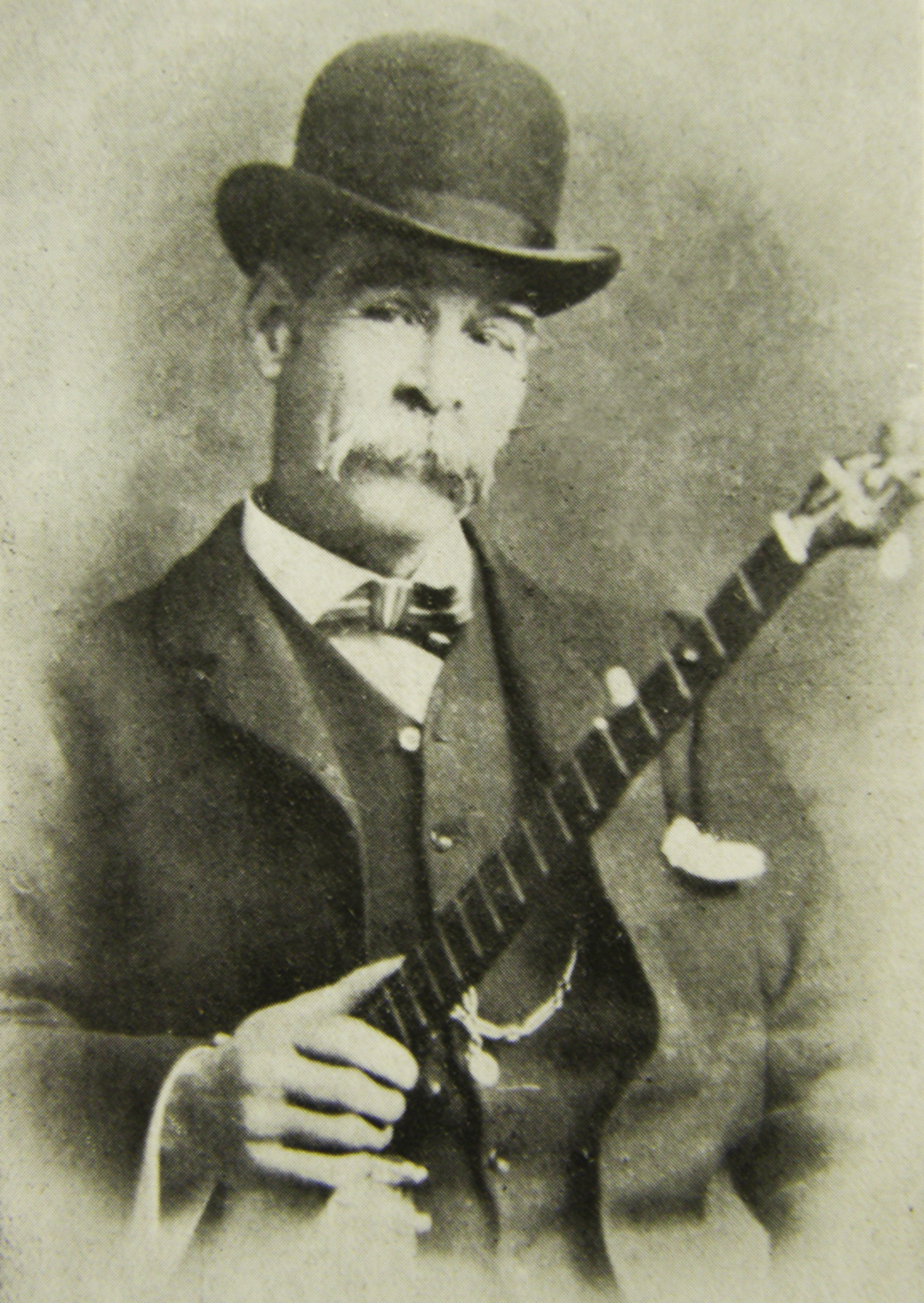Classic-Banjo
A Site Dedicated to all enthusiasts of Classic Style Banjo
S.S. STEWART PHILADELPHIA BANJO MAKER EXTRAORDINAIRE
I came across this article from the website of “Australian Postal History and Social Philately”
I wonder how I got there as well, and YES I should get a life !!
This remarkable illustrated cover has 2 x 1d plus ½d Tasmanian stamps with Hobart, Tasmania duplex cancels with a printed drawing of a washerwoman standing on a rug, holding a large letter and a mop and bucket. The letter is addressed to Mr. S.S. Stewart, Banjo Manufactory, Church Street, Philadelphia, U.S.A. The reverse is backstamped Philadelphia 1897.
The sender is not identified but the addressee is of considerable importance. Samuel Swaim (not a typo error!) Stewart was born in Philadelphia, Pa. on January 8, 1855. He originally studied the violin but in 1872 he took lessons on the banjo from George C. Dobson. Six years later he opened a studio for teaching the banjo in his native city, which laid the foundations for his vast publishing and manufacturing business. He was dissatisfied with the banjos then available, so that he studied their construction. He opened a factory at 221-223 Church Street in 1879 with improved designs of Clark, Dobson, Schall models.
By 1896 his factory was turning out first class banjos by the hundreds, priced from $10 to as high as $200. He was said to have an agency in every town in America, as well as selling to agents all over the world. At different times he ran a full-page advert in “The New York Clipper” and he was largely responsible for making Americans banjo conscious. At the Columbian Exposition in Chicago in 1893, the Exposition catalogue proclaimed that his Church Street Manufactory was “the only establishment of its kind in the world - the largest and most complete banjo manufactory in existence” which produced only banjos.
He was the first maker to strengthen the banjo neck with inlays of hardwood set on the cross grain to prevent warping. He had no patents on his banjos, and he only claimed an improved and perfected banjo, secured by new processes of manufacture. He published the first banjo catalogues, along with journals and sheet music.
For sale recently: An 1890's banjo (Special Thoroughbred Style 4) in especially fine condition in a soft case was priced at $4,000 .
His firm was taken over by a mandolin and guitar maker, Bauer and the firm of Stewart & Bauer opened in Philadelphia with Stewart’s son Frederick S. working in the office. Stewart died of a stroke in 1898.
Tags:
Replies to This Discussion
-
Permalink Reply by Trapdoor2 on January 14, 2015 at 22:10
-
I emailed them a year or so ago. The sender was a well-known Hobart artist (and banjo player) who sent dozens of these "artistically enhanced" letters to S.S.S over the years. Stewart published a collection of them (which you could buy for a dime). I've got an original copy.
I also emailed the University of Tasmania with additional info about the letters for their exhibit on the artist. Thomas Midwood.
Here he is:
-
Permalink Reply by skip sail on January 23, 2015 at 14:52
-
fascinating! I have a musician contact at the university,if thats any help?
-
Permalink Reply by Trapdoor2 on January 23, 2015 at 16:34
-
Hi Skip,
I think the university had an exhibition of Midwood's work about 10 yrs ago, the website still has a link to it...but I also suspect that it is a 'dead' issue for them. On to other projects, y'know.
However, if you find that there is indeed someone interested in seeing more of them, send 'em my way and I'll be happy to discuss it with them. I have scanned the Stewart publication, etc.
-
Permalink Reply by 0owyfaerzqryi on June 9, 2017 at 7:47
-
Dear Trapdoor2
I am working on a new project at UTAS, one aspect involves migration of the Midwood website to a new system; effectively there is going to be ongoing stewardship for all online exhibitions.
I would really like to see the scans of the Midwood artwork published by Stewart if you still have them digitised.
Recently, I have viewed the partial archive of the SS Stewart Banjo and Guitar Journal held by the University of Rochester's Sibley Music Library, which includes several pen an ink drawings depicting the artist Midwood and others playing S.S. Stewart banjos, as well as correspondence explaining which banjos Midwood purchased for himself and his music students in Tasmania.
The illustrations in Vols. 90 and 96 are particularly impressive, but sadly there was another illustration described in one issue that was sent to the engraver to be cut but was destroyed by fire in Philadelphia
regards
Glenn
Trapdoor2 said:
Hi Skip,
I think the university had an exhibition of Midwood's work about 10 yrs ago, the website still has a link to it...but I also suspect that it is a 'dead' issue for them. On to other projects, y'know.
However, if you find that there is indeed someone interested in seeing more of them, send 'em my way and I'll be happy to discuss it with them. I have scanned the Stewart publication, etc.
© 2026 Created by thereallyniceman.
Powered by
![]()
